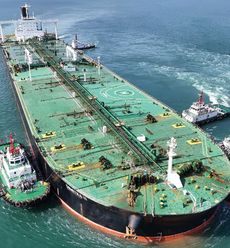Oil
The latest news, updates and opinions on Oil from the expert team here at MoneyWeek
-

The state of Iran’s economy – and why people are protesting
Iran has long been mired in an economic crisis that is part of a wider systemic failure. Do the protests show a way out?
By Simon Wilson Published
-

Why does Donald Trump want Venezuela's oil?
The US has seized control of Venezuelan oil. Why and to what end?
By Simon Wilson Published
-

Why Scotland's proposed government bonds are a terrible idea
Opinion Politicians in Scotland pushing for “kilts” think it will strengthen the case for independence and boost financial credibility. It's more likely to backfire
By Matthew Lynn Published
Opinion -

What MoneyWeek has learnt in the last 25 years
Financial markets have suffered two huge bear markets and a pandemic since MoneyWeek launched. Alex Rankine reviews key trends and lessons from a turbulent time
By Alex Rankine Published
-

Overlooked companies' debt and equity to invest in now
Opinion Ian “Franco” Francis, fund manager, Manulife CQS New City High Yield Fund tells MoneyWeek where he’d put his money
By Ian Francis Published
Opinion -

'BP’s days as an oil giant are numbered – a merger with Shell would be the best outcome by far'
Opinion BP has been in decline for some time, could a takeover by Shell save it?
By Matthew Lynn Published
Opinion -

Investors remain calm as the Middle East war unfolds
Conflict in the Middle East has failed to shake oil or stock markets. Can the peace hold?
By Alex Rankine Published
-

Oil price stays steady as tensions in Middle East boils over
Oil prices surged after Israel's attack on Iran, but the global market for the commodity is forecast to remain well-supplied until 2030
By Alex Rankine Published
-

'North Sea oil is ripe for a rebound'
Opinion Labour’s green-energy policy is unsustainable, says Dominic Frisby. That bodes well for British oil explorers
By Dominic Frisby Published
Opinion
